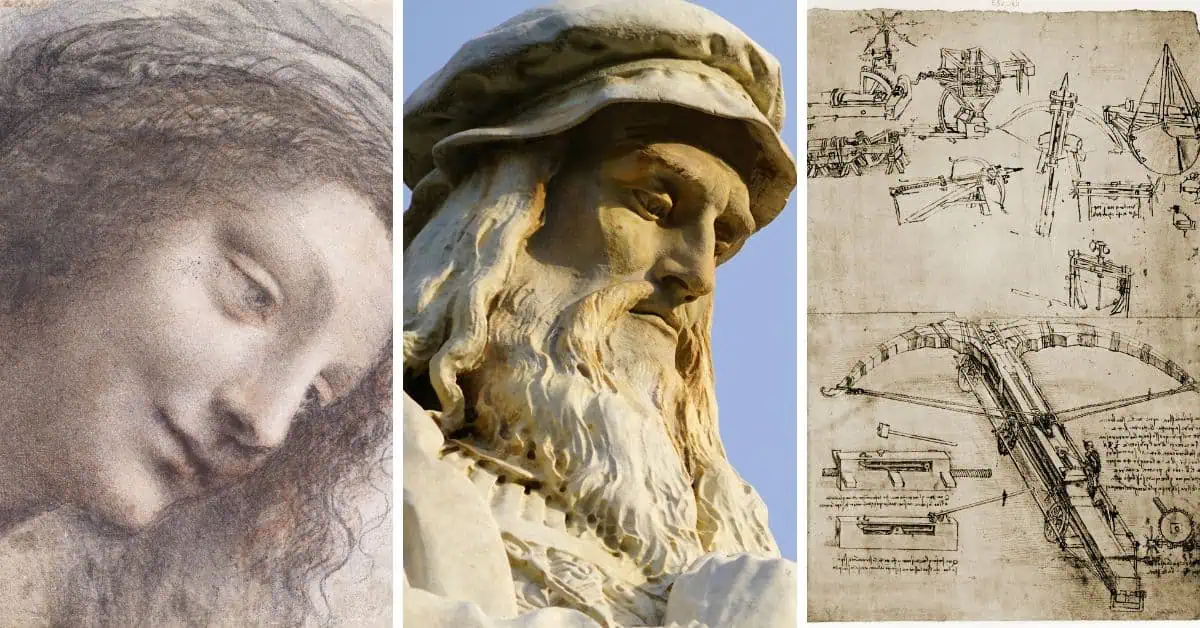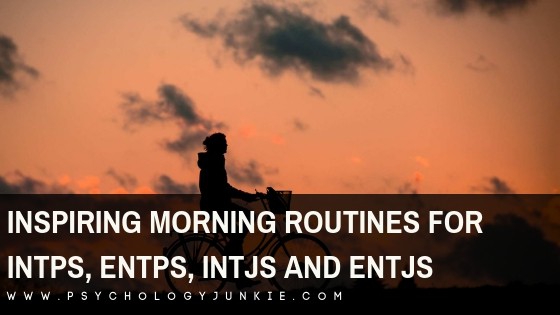What if the ordinary things around us—the trees in the yard, the glow of the moon, the clouds—were actually teeming with ideas? This is exactly what Leonardo da Vinci believed. He suggested that we stop, look deeply, and see. “Look into the stains of walls or ashes of a fire,” he wrote, “and you may find really marvelous ideas.” This might sound odd to people who have never done it. But there’s power in it. Take what seems insignificant and realize that there’s an entire world waiting to be uncovered.
Now Leonardo wasn’t just talking about staring at walls for the sake of it. This was a man who created art, invented machines, and pondered the very nature of the universe. For him, every moment was an opportunity for insight. And that’s where we, as intuitive types, come in. We’re wired to see beyond the surface, to make connections between things others might miss, to feel the patterns of the world around us. But, as anyone who’s ever been swept up in a whirlwind of ideas knows, it’s easy to get lost in the noise of constant doing.


This is where da Vinci’s lesson really lands. Right now we live in a world that wants us to be in a constant state of distraction. News headlines alarm us with tales of doom and corruption, apps on our phones want to ping us with reminders to look at them at every possible moment, the world runs on attention. Our attention.
Doing what da Vinci suggested requires stepping away from the modern mindset and doing something that nowadays seems completely out of the ordinary. Be still. It’s about stepping back, putting down the phone, and allowing insight to breathe, to develop. It’s about creating space for those quiet moments when everything suddenly clicks into place.
In this article, I’ll be unpacking how we, the intuitive types, can embrace da Vinci’s method of slowing down—of finding meaning in the mundane—and apply it to our lives. We’ll look at how each introvertedcan benefit from cultivating a practice of mindful observation, where insight is allowed to bloom naturally.
Let’s begin!
Not sure what your personality type is? Take our new personality questionnaire!
For INFPs
Da Vinci’s invitation can inspire you to reclaim your creativity in a world that demands constant action. As an INFP your Intuition is all about exploring possibilities, but it can feel like a tornado when you’re constantly jumping between ideas without a moment to reflect. Meanwhile, your Feeling side is always asking, “What’s the meaning here?” “Why does this matter?” “How do I feel about it?”
This can be maddening when the world is constantly trying to pull your attention in directions that aren’t significant but attract your dopamine like a bee to pollen. You might find yourself scrolling TikTok for an hour and then despising yourself because, ultimately, you didn’t do anything that “meant” anything. Or you might play a bubble popping game instead of reading that book that you really care about.
I get it. We all live in this crazy, messed up world that focuses more on materialism than meaning. It can feel like an uphill battle to do anything that is personally profound. Don’t be harsh on yourself for this. In a society obsessed with productivity, distraction, and urgency, it’s radical to give yourself the permission to not rush. You can be counter-cultural in your approach and still produce work that is impactful and true to your soul.
Here’s how you can adopt this in your own life:
- Embrace the pauses: Step away from your phone, find a quiet space, and let your mind wander. Observe the little things around you, whether it’s the sway of a tree or the quiet moments in a conversation. Let your Ne pick up on those small hints of meaning without feeling the need to act on them immediately.
- Turn distraction into reflection: When your mind jumps from idea to idea, don’t fight it; let your Ne roam, but keep a journal nearby. Write down the sparks of inspiration you catch, and come back to them later, giving your Fi time to process them against your core values.
- Set boundaries with external demands: Create intentional “off” time where you let go of external pressures, whether it’s the expectations of others or the pull of social media. Use this space to dive deep into your own thoughts and allow your insights to breathe without interference.
- Trust your inner rhythm: You don’t have to conform to society’s timeline. Your Fi knows that the most authentic work comes when you honor your own pace, even if it feels slower than what others expect.
The Creative Flow Challenge
Goal: Use art, music, or poetry to explore and express your inner world.
How to Play:
- Day 1: Artistic Exploration
Choose one medium (music, art, or poetry) to express how you’re feeling or what you’re thinking. If you’re feeling stuck, pick a theme or a question, like “What does today feel like?” or “What do I want to say but don’t know how to express?”- For art: Create a simple sketch or digital artwork that represents your feelings or thoughts. It doesn’t need to be perfect; it’s about expression, not perfection.
- For music: Find a song that resonates with how you’re feeling or make your own short melody using a simple instrument or app. Or add it to a playlist for that particular mood.
- For poetry: Write a free-form poem that allows your thoughts to flow without judgment or restriction.
- Day 2: Artistic Response
Reflect on the piece you made yesterday. Did it unlock any new feelings or insights? If it did, try creating a new piece that responds to it. Let your intuition roam freely; what new connections or ideas came up in your mind since then?- For art: Add a new layer to your previous piece, letting it evolve. Maybe use color or texture to represent something deeper you’ve realized.
- For music: Create a variation of the melody, adding new instruments, layers, or rhythms that capture a new insight or feeling.
- For poetry: Write a follow-up poem, this time building off the feelings you uncovered yesterday.
- Day 3: Create a Manifesto of You
Combine your creations into a single expression of who you are right now. This could be a collage of images, a playlist, a spoken word performance, or any other blend of your chosen mediums.
Bonus Point: Share this piece with someone close to you (if you’re comfortable), or just reflect on it yourself.
Reward: You’ll have created a multi-faceted expression of your emotions, thoughts, and insights. More importantly, you’ll have found new ways to process and express what’s going on inside. Your Fi gets a chance to shine in a deeply personal way, while your Ne takes you on a journey through different creative forms, making connections between them as you go.
For INTPs
For INTPs, da Vinci’s method seems fairly natural. With your dominant Introverted Thinking, you’re wired to dissect and understand how things work. This is a strength, of course, but it can also make it hard to step back from the details and let your ideas breathe. Your intuition constantly feeds you connections, patterns, and potential theories, but sometimes the challenge is not to rush into the next idea before fully exploring the one in front of you.
Da Vinci himself struggled with finishing projects. His notebooks are filled with inventions and ideas, but many were never realized. INTPs might find this frustratingly familiar. You get so pulled into the learning process, the thrill of discovery, that it becomes hard to settle on one idea long enough to bring it to fruition. Or your Ne pulls you in a new direction before you’ve completed your current project. Da Vinci, however, knew that true learning comes from taking the time to pause and reflect. He famously said, “Learning never exhausts the mind; it only ignites it.” But that ignition requires space and pause. Without it, you risk being stuck in an endless loop of analysis without ever creating something concrete.
For INTPs, the challenge is finding the balance between exploration and stillness. For INTPs, the challenge lies in balancing exploration with stillness. Your mind is constantly gathering information, seeking out patterns, and connecting dots to build a clearer picture. But real insight isn’t just about eating up more data. It’s about giving yourself the space to pause and reflect on what you’ve already gathered.
It’s easy to get lost in the endless cycle of deep dives; Reddit rabbit holes, research binges, and analysis paralysis. It can feel like you’re constantly on the edge of a breakthrough, but unable to take action because there’s always more to learn, more to consider. Or maybe you find yourself with dozens of tabs open, feeling overwhelmed by the constant flow of information, when a little quiet reflection or meditation could be the key to clearing your mind and moving forward. Da Vinci understood the value of stepping away and giving your mind the space to rest and make sense of what it had absorbed.
Here’s how you can embrace this in your own life:
- Capture your ideas without judgment: As your mind jumps from thought to thought, write down everything—whether or not you think it’s immediately useful. Trust that your thinking side will help you filter through the noise later.
- Set time aside for intellectual rest: Da Vinci didn’t rush his discoveries, and neither should you. Intentionally schedule time where you allow your mind to rest. Not every moment needs to be filled with analysis. This mental “off-time” gives your brain the chance to process and connect things in a deeper, more meaningful way.
- Trust the process: Your intuition will bring you new ideas constantly, but your thinking side needs time to process and integrate them. Don’t force the connection. Give it the time and space to develop, and trust that the right idea will come at the right time.
The Idea Jar Challenge
Goal: Capture all your wild, brilliant thoughts without judgment for one week.
How to Play:
- Each time an idea, theory, or concept pops into your head, write it down and throw it in your “Idea Jar.” Don’t worry about whether it’s a good idea or not, just capture the thought.
- Once a day, pull one random idea from the jar and spend 5 minutes reflecting on it. Just let your mind wander and consider how the idea might connect to something else or grow into something bigger.
- Bonus Point: At the end of the week, review your jar and pick one idea that you feel might actually be worth diving deeper into.
Reward: Not only will you clear out mental clutter by writing everything down, but you’ll have some unique ideas ready for future exploration. Who knows what might evolve into your next big breakthrough?
For INFJs
For INFJs, da Vinci’s idea of pausing to observe might seem like a luxury. But as an INFJ it’s essential. With your dominant intuition, you’re always processing, always connecting the dots between things that others miss. Your intuition works best in silent reflection, away from the commotion of other people or alerts on your phone. But in a world that’s noisy, fast-paced, and constantly demanding more of you, it’s hard to find the time for real reflection. It can feel like the world was designed for sensors and extroverts, not intuitive introverts like yourself. And your feelings would probably be right. I speak to INFJs every week who feel like they’re being psychologically suffocated by a world that is constantly trying to pull their attention outward rather than inward. Your need for stillness and space to think can seem out of place in a culture that rewards noise and activity.
Da Vinci’s genius didn’t come from always moving forward. He knew that sometimes, the best ideas need time to evolve. The same goes for you. But in a world obsessed with instant results, it can be hard to remember that your best work often comes after a little pause; when you step away from the distractions and let your mind breathe. The truth is, you can’t always be on. You need time to step back, process, and reflect.
Here’s how you can make this work for you:
- Create quiet space: Even if it’s just for a few minutes, give yourself the gift of silence. Turn off your phone, find a spot to sit quietly, and let your intuition work its magic without interruption.
- Embrace reflective journaling: When your mind starts bouncing from idea to idea, don’t try to force it into order. Write everything down and come back to it later. It gives your intuition time to see how your ideas align with your deeper values.
- Set boundaries with distractions: You don’t need to be constantly accessible. Turn off notifications, and set aside time where you can just think without the pressure of everyone else’s demands.
- Trust your pace: The world might be rushing, but you don’t have to. Your insights will come when you give yourself time to let them evolve. I one talked to an INFJ who described her intuition as a slow cooker. She needed to put all her ideas, troubles, and thoughts in her mind and then do something else, like take a walk, meditate, or even sleep, and her subconscious would start piecing everything together to give her an epiphany or meaningful insight.
The Insight Walk Challenge
Goal: Use your daily walks to reflect and allow your ideas to breathe.
How to Play:
- Choose a time each day for a 20-minute walk outside. No distractions. Leave your phone behind and focus entirely on observing your surroundings.
- As you walk, let your mind reflect on a particular question, challenge, or idea. Don’t rush to solve it, just let it simmer as you take in the details of nature around you.
- Bonus Point: After your walk, jot down any insights, connections, or new perspectives that came to mind. See how the fresh air and quiet helped your mind process things in a new way.
Reward: By the end of the week, you’ll not only have the peace of a daily reflective practice, but you’ll also have a series of “aha!” moments to add clarity to your creativity and problem-solving.
For INTJs
As an INTJ you’re always thinking, always analyzing, and always working on your next big plan. Your dominant intuition helps you see the big picture, connecting dots and building strategies, but the constant drive to move forward can sometimes leave little space for reflection. You’re in a world that wants things done now, where distractions are everywhere, and everything moves at lightning speed. It’s hard to pause when there’s so much pressure to act.
As an INTJ myself I can understand the compulsion to produce, produce, produce. Our Thinking and Judging sides can push us towards constant efficiency; pulling us away from our inner intuition and more towards external results.
Da Vinci understood that true genius doesn’t come from rushing from one project to the next. He spent years thinking, reflecting, and refining his ideas. He didn’t let the chaos of the world push him into action without thinking things through. For INTJs, the challenge is the same. It’s not just about finding the best strategy, it’s about giving your mind the time it needs to process and synthesize. Pausing isn’t a waste of time; it’s where your best ideas grow.
Here’s how you can adopt this in your own life:
- Set time for deep thinking: Block off time in your day where you don’t have to do anything. No phones, no distractions, just space to let your mind wander and process.
- Minimize sensory overload: The world is constantly buzzing. Take moments to retreat into quiet places where your mind can focus without outside noise.
- Create space to reflect: Da Vinci didn’t rush his work, and neither should you. You’ll make better decisions when you allow your mind to integrate all the information, rather than scrambling to act on every new idea immediately.
The Strategy Pause Game
Goal: Design a strategy and then give yourself time to implement it, with a twist.
How to Play:
- Choose a project, big or small, that you’ve been thinking about (or analyzing endlessly) but haven’t taken the next step with. Create a strategy plan for this project, including the steps you would take to start.
- Then, instead of immediately executing, give yourself 24 hours of “pause time” to let your ideas settle and evolve. During this time, don’t add any more to your plan—just sit with it.
- Bonus Point: After 24 hours, re-evaluate your plan. What new insights or improvements have come up? Is there a new direction you want to take that wasn’t in the original plan?
Reward: You’ll not only have a clear strategy to move forward, but you’ll also have learned the value of giving your mind time to reflect. Plus, you’ll be less likely to rush into execution before your ideas are fully formed.
What Do You Think?
Have you tried any of these methods before? Have you found an approach that helps you to prioritize stillness and reflection? What have you learned in the process? Let us and other readers know in the comments!
Other Articles You Might Enjoy:
Today I want to talk about the driving force or guide of every intuitive Myers-Briggs® personality type. Intuitive personality types are marked by the “N” in their personality type code…
I’ve spent over a decade as an MBTI® practitioner watching people light up when they feel seen. It can be life changing to find a sentence, a story, or even…
Dear Idealist, You came here wanting to make a difference.Not just a little one.Not just a “pay the bills, be a decent person, recycle your cardboard” kind of difference.You wanted…
As an Intuitive-Thinking personality type, you’re someone who craves mastery and competence in every area of your life. You seek a life filled with meaning, discovery, and understanding. Determined and…



